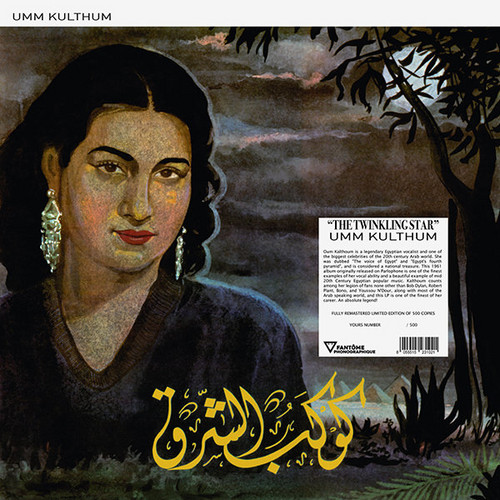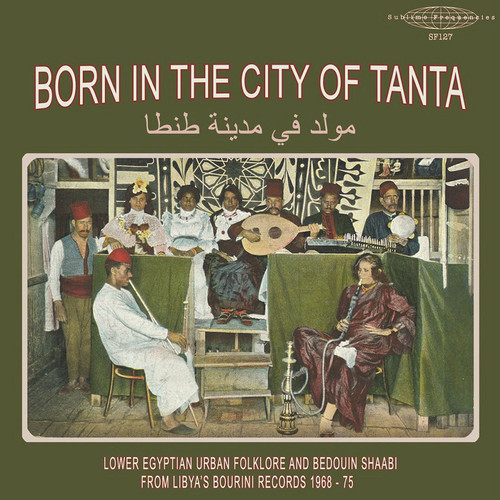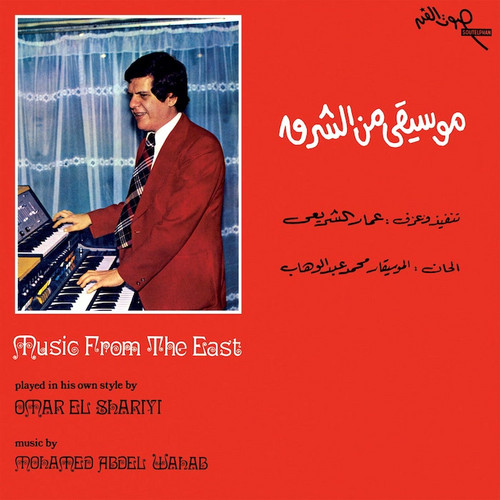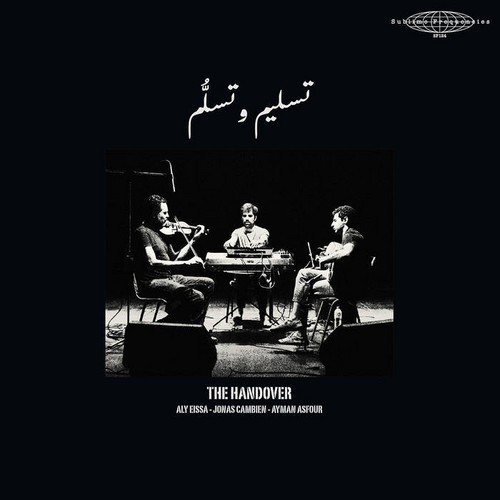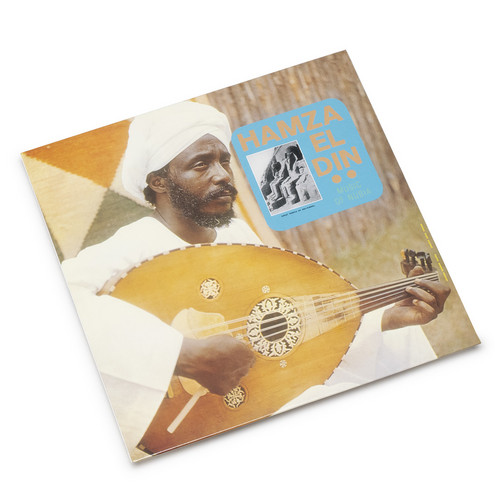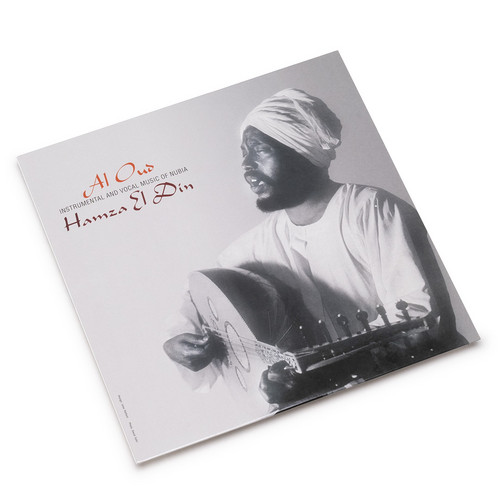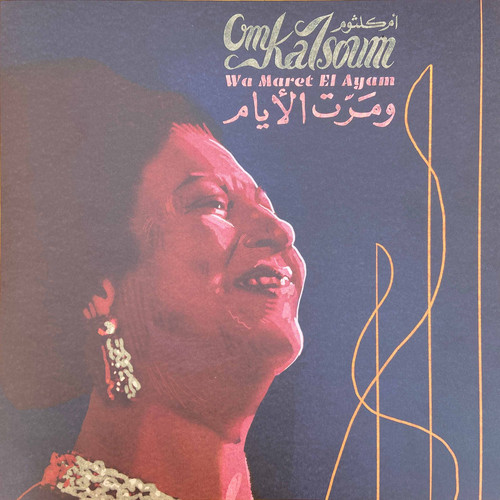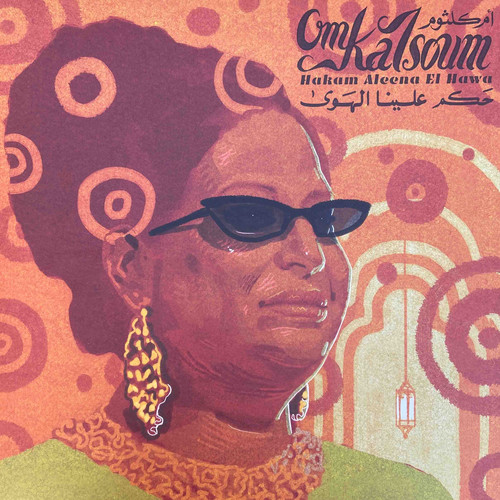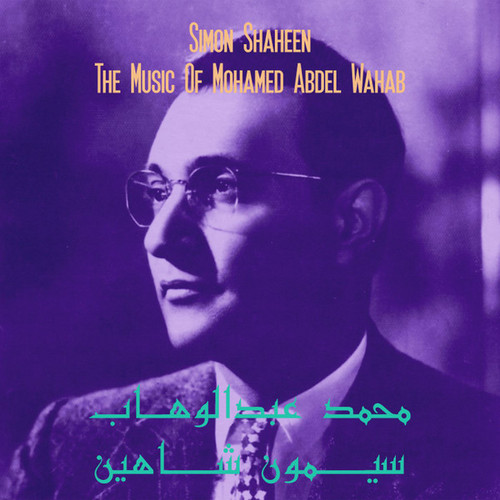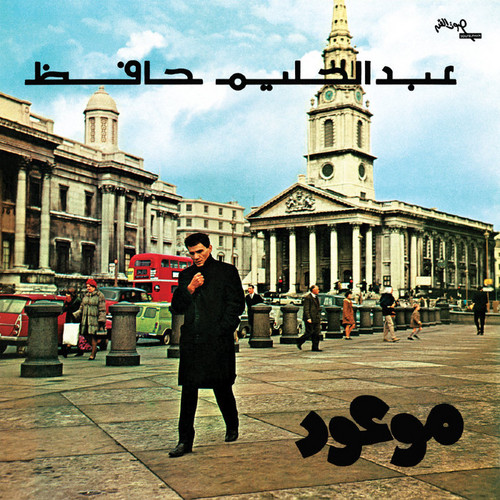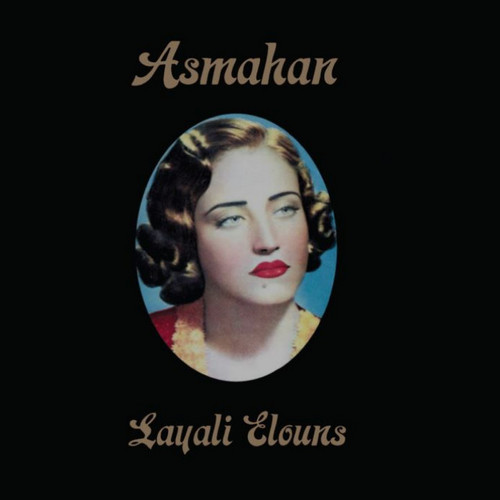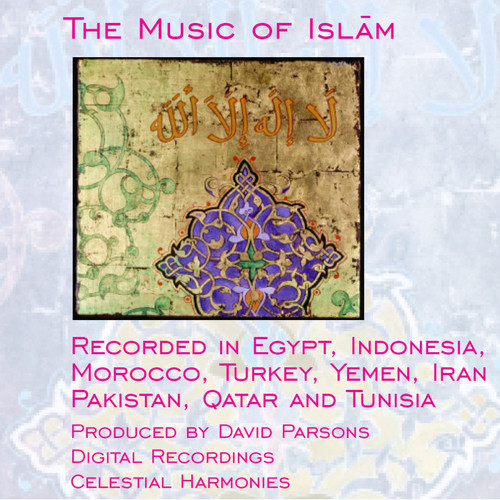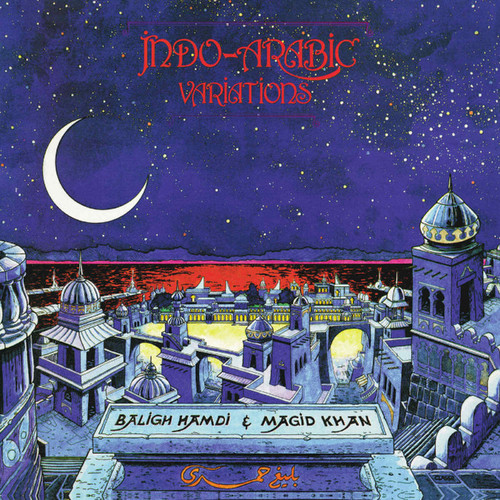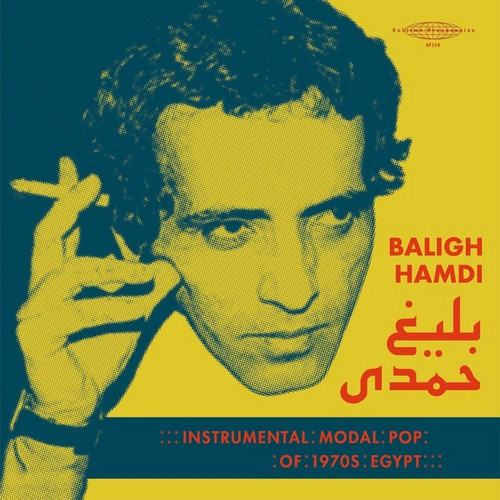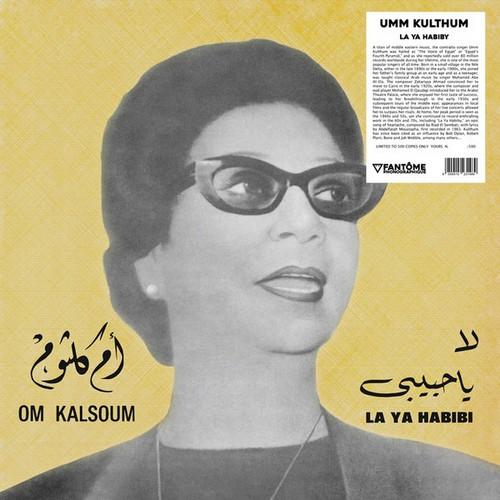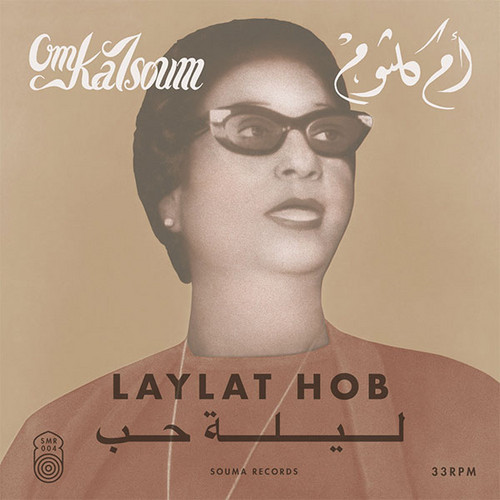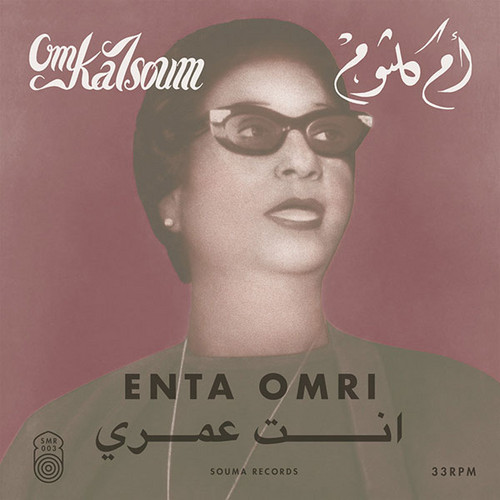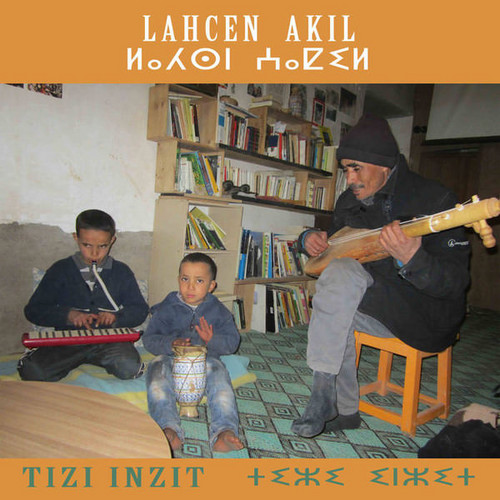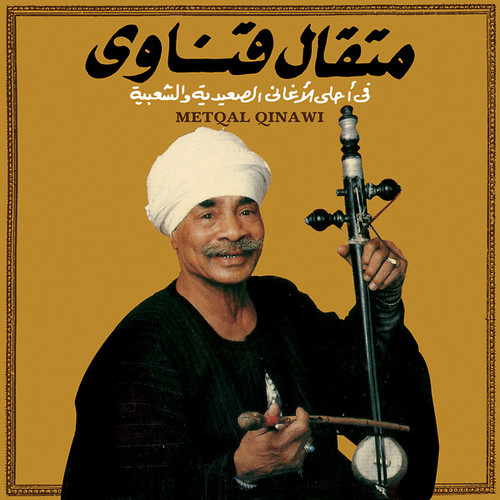Folk /
The Twinkling Star
Legendary Egyptian vocalist and cultural icon Umm Kulthum, revered worldwide as “the Voice of Egypt” and often described as “Egypt’s fourth pyramid,” remains one of the most powerful figures in music history. Originally released in 1961 on Parlophone, The Twinkling Star is a luminous showcase of her unparalleled vocal mastery—an album that captures both the grandeur of her artistry and the emotional intensity that made her a cultural phenomenon across the Arab world and beyond.
A cornerstone o…
Born in the City of Tanta - Lower Egyptian Urban Folklore and Bedouin Shaabi from Libya's Bourini Records 1968-75
Egypt’s “official” popular music throughout much of the 20th Century was a complex form of art song steeped in tradition, well-loved by the middle and upper classes, and even accommodating to certain non-Arabic influences. It was highly structured by professional musicians working an established industry centered in the capitol, Cairo.However, far from the bustling cosmopolitan center of Cairo, north and northwest, in towns like Tanta and Alexandria and extending across the Saharan Desert to the…
Music from the East
Wewantsounds is delighted to announce the reissue of Ammar El Sherei's sought-after instrumental album " Music From The East" from 1976. Here, the iconic Egyptian musician and composer revisits seven classic compositions by another Egyptian legend, Mohamed Abdel Wahab, in his own hypnotic way. Mixing Arabic music with funky arrangements and electric keyboard experimentations, the album is a perfect showcase for El Sherei's artistry. Curated and annotated by Lebanese-born Arabic music expert Mari…
The Handover
Tip! "There is, and has been, a prevailing orthodoxy permeating the Egyptian musical hierarchy that would render this spectacular piece as scandalous. But let us remember that over the past 100 years, Said Darwish, Mohamed Abdel Wahab, Halim El Dabh, Ahmad Adaweya, and the modern Mahraganat movement have all experienced their fair share of scandal and opposition. Music must always be pushed forward – it may not always succeed as revelatory, but in this particular case, it does. Much like the ven…
Music Of Nubia
Hamza El Din (July 10, 1929 – May 22, 2006) was an Egyptian composer, oud player, tar player, and vocalist. Performing on the oud (the Arabian short-necked lute) and the tar (the ancient single-skinned frame drum of the upper Nile), along with his gentle voice and original compositions, Hamza combines the subtleties of Arabic music with the indigenous music of his native Nubia. He has single-handedly forged a new music, essentially a Nubian/ Arabic fusion, but one in line with both traditions an…
Al Oud
Hamza El Din's second album is similar in tone to his debut, featuring original compositions based on Nubian folk traditions, masterful oud playing, and soothing vocals. Serene and haunting, this was among the first world music recordings to make an international impact.
Wa Maret El Ayam
From the two towering pillars of the Arab World’s Tarab, Om Kalsoum & Mohamed Abdel Wahab, comes another cult classic of Wa Maret El Ayam. With an iconic prelude featuring one of Abdel-Wahab’s quintessential fusions, this time a Libyan folk melody, Souma records bring a long-awaited remastering of the original studio version. Entrancing, magnetic and transcendental all at once.
Hakam Aleena El Hawa
Egyptian King Baligh Hamdy and “The Lady” Om Kalsoum meet for the final time in her parting ode, Hakam Aleena El Hawa. With a hypnotic intro featuring the rhythmic fireworks of Hany Mehanna’s organ, Souma records bring a remastering of the original studio version for The Voice of Egypt to live on. Musing, beckoning and triumphant as always.
The Music Of Mohamed Abdel Wahab
Tip! Reissue of the oud / viola virtuoso Simon Shaheen’s interpretations of pieces by one of the Middle East`s most important 20th Century composers, Mohamed Abdel Wahab. Produced by Bil Laswell, remastered for vinyl at D&M Berlin. Mohamed Abdel Wahab (1902-1991) was „a giant in the world of Middle Eastern entertainment” (Al Jadid Magazine) - as singer, actor and composer – and is commonly considered “the father of modern Egyptian song”. After a visit to Paris, he revolutionized the film industr…
Mawood
All-time arabic music classic recorded in 1971 by egyptian music titan Abdel Halim Hafez. Composed by Baligh Hamdi and featuring Omar Khorshid, the album is reissued on vinyl for the first time in decades, with remastered audio.
Layali Elouns
*In process of stocking* Amal al-Atrash (1912 – 1944), better known by her stage name Asmahan, was an Egyptian singer and actress of Syrian origins who lived in Egypt. Having immigrated to Egypt at the age of three years old, her family knew the composer Dawood Hosni, and she sang the compositions of Mohamed El Qasabgi and Zakariyya Ahmad. She also sang the compositions of Mohammed Abdel Wahab and her brother Farid al-Atrash, a then rising star musician in his own right. Her voice was one of the…
The Music Of Islām
Ten years in the making, The Music of Islam series recorded in Egypt, Morocco, Tunisia, Turkey, Yemen, Pakistan, Indonesia, Iran and Qatar represents the most comprehensive sound documentation available to Westerners today, of a world religion dating back to 1/622. Although governed by strict rules for fourteen centuries, contact with other cultures has radically affected Islamic music throughout history. As the world enters the XV/21st century the timing of this collection serves an even larger…
Indo-Arabic Variations
Tip! Unique fusion of the Indian and Egyptian music cultures devised by Baligh Hamdi, the most prominent of all modern composers in the Arab-speaking world. Hamdi, who penned dozens of hit compositions for Umm Kulthum, Abdel Halim Hafez, Warda and Sabah amongst others, also shaped the future of Arabic music in a way that's difficult to overestimate.
Directed by Hamdi, the renowned Indian sitar player Magid Khan joins the Egyptian musicians of Abdel Halim Hafez's orchestra in re-reading some of H…
Modal Instrumental Pop of 1970s Egypt
2LP tip-on gatefold jacket with rare photos and extensive liner notes by Hisham Mayet. Sublime Frequencies finally unleashes its essential compilation from 1970s Egypt, produced and compiled by Hisham Mayet. Modal instrumental tracks from Baligh Hamdi -- one of the most important Arabic composers of the 20th Century (writing for legends Umm Kalthum, Abdel Halim Hafez, Sabah, Warda, and many others). Features his legendary group the Diamond Orchestra with Omar Khorshid on guitar, Magdi al-Hussein…
La Ya Habiby
"Fantôme Phonographique present a reissue of Om Kalsoum's La Ya Habiby, originally released in 1963. A titan of middle eastern music, the contralto singer Om Kalsoum (or, Umm Kulthum) was hailed as "The Voice of Egypt" or "Egypt's Fourth Pyramid," and as she reportedly sold over 80 million records worldwide during her lifetime, she is one of the most popular singers of all time. Born in a small village in the Nile Delta, either in the late 1890s or the early 1900s, she joined her father's family…
Laylat Hob
Mohamed Abdel Wahab wrote another big score for Om Kalsoum in 1972. In Laylet Hob (A Night of Love) we hear Arabic music and poetry in perfect symbiosis. The rich and lengthy instrumental intro is just a precursor of the emotion present in this song. The talent of the composer is underlined by how he utilises the traditional style of singing poetry in a more open and creative way. Abdel Wahab’s infusing of long and groovy interludes with varied tonality, rhythmical patterns and an overall unique…
Enta Omri
Enta Omri is Om Kalsoum’s most famous song, composed by Mohamed Abdel Wahab, who is still rightly regarded as a prominent musician and composer in Egypt. The creation of this song was the first long expected collaboration of two musical giants, which came at the repeated urging of Egyptian President Gamal Abdul Nasser.There was talk in Egypt on the streets and in the media about what was believed to be a cold relationship between the two legends. Finally, after years of estrangement, Mohamed Abd…
Tizi Inzit
Recorded by Lucien in March 2018 in Tamlalt, Moroccan High Atlas, in the blue room at the Bibliotatlas collective. Lahcen perfroms his songs on a lothar, an instrument that he made himself, with a wooden handle, a palm soundboard and goatskin. He is accompanied by El Hussain Safir on bendir and vocals, Lahcen Bouri on bendir, Tarik Boughfyani on tamtam and vocals,Idir Ben Hakim on tamtam and vocals and El Houssain Oumaa on bendir, tamtam and vocals.
Metqal Qinawi
Metqāl Quenāwī, born in 1929 (Luxor, Egypt), also known as Met'qal, Metaqal Kinawi Metaqal, Metaqal Rebab Ensemble, Metkaal Kenawe or Awlad Metqāl, developed an intense artistic career based on rescuing folk traditions from southern Egypt. Recovering the traditions of the Said, the southern region around Luxor, Qena, and Asyut, Metqāl was brought up on the customs of the Fellahin (agricultural laborers who passed on the age-old traditions of Egypt), which were disseminated across the nation by t…
